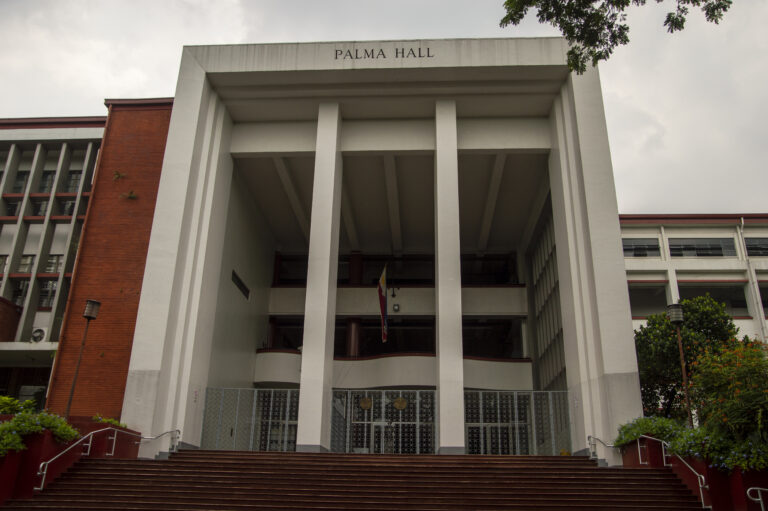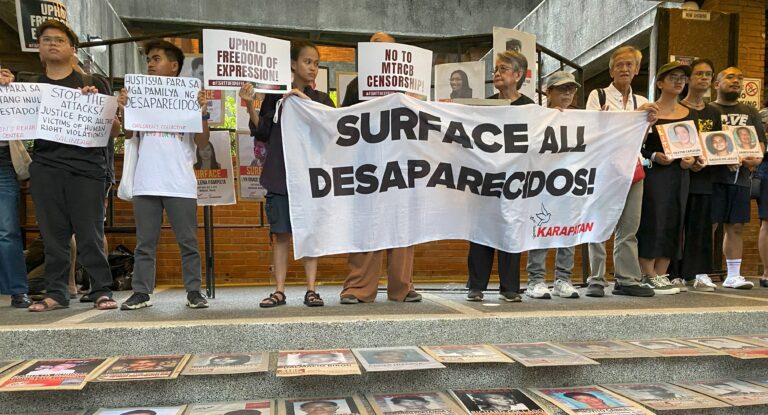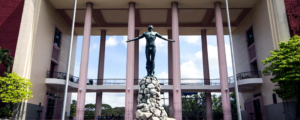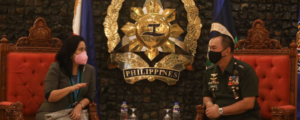
How many times have you pushed yourself to your limits these past few weeks? How many sleepless nights have you gone through and are continuing to go through?
Honestly speaking, kaya mo pa ba?
It starts out to be so exciting — living the UP dream, organizing your study table, reading in advance because there’s so much out there to learn. And then comes the hard part which is actually learning and studying. Simply put, it gets tiring.
The repetitive routine of waking up then sitting in front of your computer and getting your schoolworks done for hours. Not to mention the readings and other extracurricular activities that you have to accomplish. They say that to make the day better, you have to have something to look forward to. Realistically, every day is a struggle in itself and however much you try, there’s really not much to be excited about. Throughout the span of 2 years in the remote learning setup, the mental health of students worsened and it continues to do so.
The University of the Philippines Diliman scheduled a reading break last November 2 to 8, days before the Mid-Semester exams in order to uphold the mental well-being of the students. However, students were bombarded with requirements and readings before the said break, and deadlines were set the week after. An appeal for the suspension of deadlines, exams, and other requirements from November 9 to 12 was submitted by the University Student Council (USC). Several organizations in the university also supported the call for a genuine academic break. Unfortunately, the university administration did not approve the request.
“It’s like a never-ending cycle of backlogs,” Nicolas Lim, a BA Sociology freshman, stated in an exclusive interview with SINAG.
Nicolas talked about the adjustment period as a freshman and the difficulty of coping with the system, especially with the online setup. When asked about how he was for the past weeks, he replied:
“I would say that the past (2) weeks has been my most stressful college experience so far. If I can describe November, I would really describe it as a hell month.”
When it came to exams, he said that they were difficult but manageable since some of his professors opted for performance tasks instead of written exams. On the other hand, he described the workload as “unnecessarily heavy”. Deadlines were back to back, and he explained that it felt like the requirements were compressed for this month for some reason.
Everyone expected to have a breath of fresh air during the reading break. But to no one’s great surprise, it didn’t quite go as expected. I asked Nicolas about his reading break experience and he emphasized the lack of rest.
“Though I would say that there were days that I wasn’t doing any academic work, it’s really hard to rest when you know you have so many things that you need to accomplish,” he stated.
Throughout Nicolas’ interview, he talked about the difficulty he has experienced firsthand and those which he heard from his block mates and upperclassmen during the midterms period. A lot of students have also talked about their current burnouts.
“Demotivating” and “frustrating” were the two words that Nicolas used to describe how he felt when the appeal was not approved. I believe that he speaks on behalf of the students on this one.
The challenge of online learning is not confined to the difficulty in internet access and lack of materials to be used. It also severely affects the mental well-being of students due to increased workload. Hence, the UP community, alongside various sectors, continue to demand the safe return to face-to-face classes.
“It feels as if we’re just only doing works for grades and not for the satisfaction of learning something new every day and improving our skills,” said Nicolas.
This mid-semester period has enlightened us all on why it is necessary that we return to school again and safely. It is a wake-up call for us to advocate and promote Ligtas Na Balik Eskwela to protect not only the integrity and quality of education but also the mental well-being of students.
The University Student Council (USC) reported earlier today that the Office of the Vice Chancellor for Academic Affairs alongside the Face to Face (F2F) Ad Hoc Committee have revised the policies for the limited face to face classes and is now pending the approval of the Office of the Chancellor amid lack of student consultation.
If malls, cinemas, and other leisure establishments are able to reopen once again, why not the schools? Most countries have already begun their face-to-face classes, yet we see minimal progress in our country.
Indeed, the virus still poses a great risk to everyone. But protection from the pandemic must not come at the expense of education.
Every single day is the same. It’s waking up to lessen the backlogs and before you know it, there’s more to do. It is a ceaseless cycle where you are challenged with back pain and burnout. At some point, you ask yourself, “when does the cycle stop?”
The answer to the question resides in the implementation of LigtasNaBalikEskwela. It stops when the schools are opened once again and we are able to learn for the sake of learning and not for the sake of simply passing. Therefore, we must stop the never-ending cycle of burnout and mental health decline. We must continue to fight for LigtasNaBalikEskwela.
#OpenTheSchools
#LigtasNaBalikEskwela
Featured image courtesy of CNN Philippines







